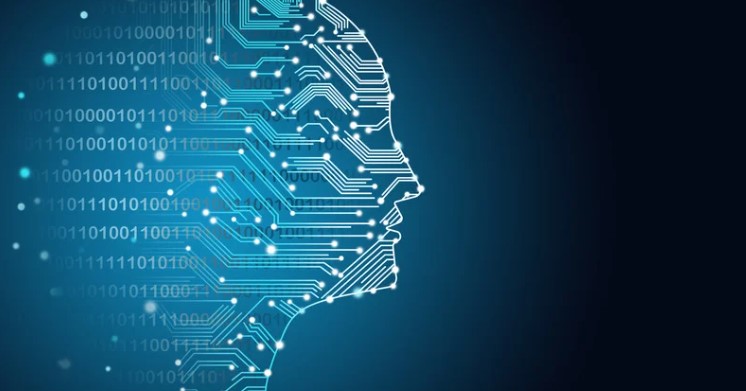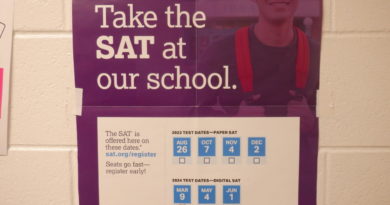A Necessary Conversation About Artificial Intelligence, Academic Integrity, and Student Voices.
The Leonia High School Handbook is a 45-page Google Document detailing all student policies at LHS. Yet, out of 45 pages and 11,459 words, there is not a single guideline on how to address the use of ethical artificial intelligence (AI) in the classroom. Consequently, the lack of a uniform policy on AI use has had major implications for students at Leonia High School. In fact, on February 28, 2025, I was one of approximately 30 students who were accused of using AI on an in-class writing assessment. As a result of this accusation, the following consequences occurred: an email notifying my parents of the alleged academic dishonesty, a write-up in Genesis, and a zero in the gradebook. While some students admitted to leveraging generative AI through a 4-page apology paper, many students–including myself– asserted that they had not used AI.
Despite my repeated attempts to vindicate myself, ZeroGPT and another unnamed AI detector ultimately decided the verdict. ZeroGPT (a free online AI detection tool) contended that my writing was 95.22% AI Generated. Interestingly, ZeroGPT also asserts that the preamble of the Constitution is 98.36% AI-generated. This false positive was also the case for numerous other students.
The gravity of this situation is clear: the academic integrity of several students was being questioned on the basis of free AI detectors– an unreliable, unverified, and inconsistent technology. As Montclair University’s Office for Faculty Excellence states, “The validity of automatic AI detection is currently impossible to guarantee. No software will detect AI-generated content with 100% accuracy.” Likewise, research has continuously illustrated that free AI detection tools are susceptible to both false positives and negatives, and may be polluted with algorithmic bias. Consequently, relying on them to determine a student’s academic integrity is a dangerous and slippery slope.
However, perhaps more troubling is the deeply personal dilemma the situation created: the testimony of a student vs. an AI detector. Gavrielle Forbes, a junior who also denies using generative AI to enhance her writing, recalls her journey of appealing the accusation. She explained to me that despite presenting her Google Document history and results from other AI checkers, she was dismissed by some members of the school community. “It made me feel helpless and unheard,” she said.
“It felt like I was being punished without a fair chance to defend myself, and it honestly made me question the integrity of the process.” – Gavrielle Forbes.
Curiously, students who utilized AI humanizers or leveraged their premium version of ChatGPT bypassed both AI detection and academic consequences.
AI in the Classroom: Weighing the Policy Gap
In an effort to understand the broader issue at hand, I spoke with several teachers at LHS. After doing so, I came to one conclusion: the lack of uniform academic policy regarding AI was harming academic integrity and the student learning process. Dr. Keith Massey, LHS Latin teacher of 19 years, stated, “The best assignments are assignments that can’t be cheated on.” English teachers Christine Millar and Nicole Bozik echoed this perspective, explaining that they primarily assign in-class assignments and rarely assign homework to prevent AI misuse. In particular, Ms. Bozik utilizes paper or discussion-based assignments to assess student progress and reasoning. Both Ms. Bozik and Ms. Millar also utilize surveillance technologies like Securly or locked Google Forms for in-class writing assignments.
While returning to paper and using locked browsers can deter AI use inside the classroom, out-of-class assignments– which are inevitable in high school– are ultimately still vulnerable to misuse. AI detectors would ideally mitigate this misuse, but free AI detectors are notoriously inconsistent. Comparatively, paid, institutional AI Checkers like TurnItIn are generally recognized as more accurate. When I interviewed social studies department supervisor Timothy Cullen, he agreed that LHS should invest in AI detectors. Ms. Millar and Bozik also unanimously agreed.
But as a student who has firsthand witnessed how AI has altered academia, I can’t help but wonder if more reliable AI detection tools will even be effective. Bergen Tech for example– the 7th best high school in New Jersey– utilizes TurnItIn for AI detection and plagiarism, yet students still employ AI technologies like ChatGPT. According to one anonymous junior at Bergen Tech, “You learn to paraphrase.”
Steps that the School Has Already Taken
Leonia High School English teacher Cristina Mulholland explained to me that the school has indeed held discussions regarding AI. Last year, the entire English department was tasked to learn more about AI, ways that they could use it effectively, and what to tell their students about AI. However, these discussions did not establish specific teacher requirements or an explicit policy. As such, some teachers took the initiative to include guidelines about AI in their syllabus, but this was not a formal action required by the school. Next year, however, teachers in the English department will be required to include an AI policy on a teacher-based level.
To date, teachers at LHS are still unaware of any further actions by the administration to tackle this issue. When I asked if a policy on AI for the student handbook was currently being developed or planned for next year, Ms. Mulholland stated that teachers were not informed of such efforts.
While requiring teachers to include guidelines about AI in their syllabus is a step in the right direction, it would not be nearly as effective as implementing one uniform policy in the student handbook detailing specific consequences and appropriate use.
Suggestions from a Student
Establishing an appeal process is beyond necessary. When I tried to appeal my accusation, I had no clear direction. Despite reaching out to my counselor and teachers, the process felt confusing, emotionally draining, and most of all, frustrating. A formalized, transparent appeal system would allow students to defend themselves.
Secondly, while students are certainly responsible for academic dishonesty, LHS should initiate school-wide discussions about expectations, the importance of academic integrity, and clearly explain acceptable uses of AI. School assemblies are one way to facilitate this conversation and build policies that work.
Furthermore, LHS should consider looking to higher academic institutions as models. Princeton University, for instance, encourages instructors and advisers to “engage students in active conversation about the importance of academic integrity” and condemns the use of AI detectors. Likewise, schools like Montclair clearly outline AI Course Policies and Assignment Guidelines.
But above all, considering student perspectives in this discussion is crucial. It is time that LHS holds conversations about why students are dependent on AI, how they leverage it, and what LHS can do to ensure that students are using AI as tools rather than crutches.
Admittedly, this issue is highly contentious. As artificial intelligence is still advancing and developing, the entire world is adjusting to the proliferation of this technology. Thus, Leonia High School cannot expect to achieve perfection in this process. However, as AI is fundamentally altering academia, it is imperative that we try. The future of education rests on what we do now.
Concluding Thoughts
While the assignment and the zero were ultimately removed from the 30 students accused of using AI, this event left a lasting mark. It exposed serious gaps in the current academic policy and prompted the need to seriously reconsider the academic landscape at LHS. Accordingly, this event must not be forgotten or swept under the rug. Rather, it should be harnessed as a launchpad to facilitate open dialogue about academic integrity, artificial intelligence, and above all, the development of student learning.
Finally, it is critical to recognize that this situation was handled with due process. Principal Chuck Kalender heard the voices of students and handled the accusations accordingly. Without this due process, the event would have established a dangerous and potentially destructive precedent.
However, unless Leonia High School sets a concrete policy for dealing with AI in the classroom, this event will have meant nothing. Now is the time to hold discussions about such policies.

